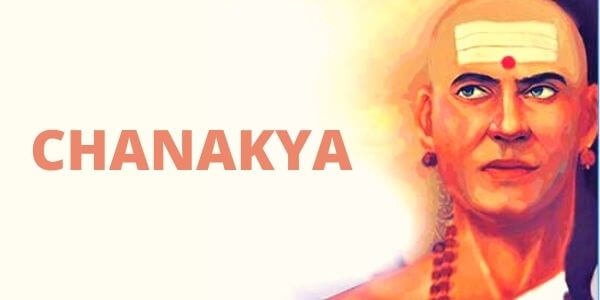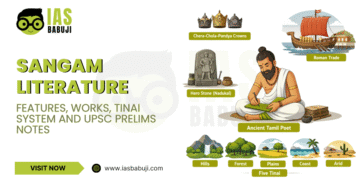Chanakya Niti is a compilation of the ideas and concepts of the ancient Indian philosopher Chanakya, some of which are still relevant today. This topic is significant for the UPSC test since it can assist you in answering questions about ethics in the GS4 paper. It can also assist hopefuls in compiling solutions to related ancient history questions. We’ll find out who Chanakya was in this article. Kautilya or Chankya Niti, Ethics, Chanakya Quotes, and Books So, Let’s get started.
Who is Chanakya?
Chanakya is one of ancient India’s most well-known and admired individuals. Chanakya, also known as Kautilya & Vishnugupta, was the first Maurya King, Chandragupta Maurya (322-185) BCEmain,’s minister and counselor. He was instrumental in Chandragupta’s acquisition of the throne of Magadha from the Nandas, who was the most powerful monarchy in ancient India at the time. He is recognized as being the driving force behind the formation of the Maurya Empire as well as the kingdom’s sound administrative machinery.
In the domains of political science and economics, Chanakya was a forerunner. In addition, he is the author of the Arthashastra, a treatise on statecraft, military strategy, and economic policy.
Chanakya’s views and concepts are known to be sharp and practical, revealing a profound understanding of human psychology. As a result, he is frequently compared to Niccol Machiavelli, an Italian statesman, as well as Aristotle and Plato.
Now that we know who Chanakya is let us discuss Kautilya/ Chankya Niti, Chanakya’s Philosophy, Ethics, Quotes, and Books. Then, please read another crucial topic for UPSC before continuing. Here you may learn about India’s White Revolution, Operation Flood, the Milk Revolution, and other vital facts.
Philosophy of Chanakya
Chanakya discussed political science, ethics, economics, statecraft, espionage, and military operations, among other topics. His thought is still relevant in today’s society, particularly in politics, administration, and even personal life. The following are some of his most notable views and utterances.
- A king, according to Chanakya, is the face of a nation. Because he is responsible for all that happens in society, he is a reflection of it.
- A king’s ultimate purpose must be the well-being of the people, which he should try to achieve.
- If a king’s acts are unjust, his subjects will abandon him.
- He should only propagate Dharma, punishing the evil while ensuring that the innocent are never penalized.
- Chanakya believed in women’s rights and hence put an end to all forms of exploitation against them.
- He placed a high value on land as a resource and suggested that it be used to its full potential.
- He was a strategist who managed to strike a balance between the states and the people. Kautilya wanted the trade to thrive, so he imposed a minimal minimum of taxes, which benefited both the states and the citizens.
- Chanakya desired to construct cities that would facilitate trade both within and outside of the state. He also advocated for the construction of fortifications to deter external assault.
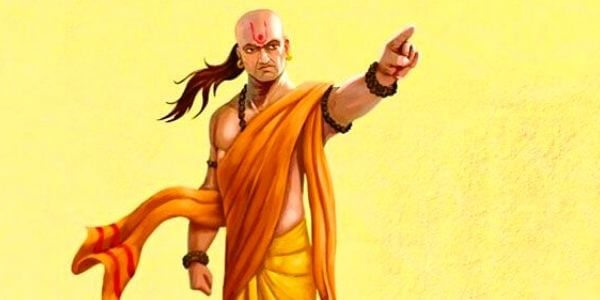
Chanakya Neeti (Kautilya Niti)
Chanakya Niti (Kautilya Niti) is Chanakya’s collection of sayings. It is a collection of concepts and remarks made by an ancient Indian teacher and statesman, many of which provide helpful advice on how to live a happy and productive life in today’s world. Between the fourth and third century BCE, Chankya Niti was authored.
- It’s the concept of being constrained by the information available to you and sticking to it by setting limits for yourself. To arrive at a decision, one should study, extend cognitive minds, and uncover answers in an infinite amount of time.
- Kautilya understood the value of good bureaucracy.
- A ruler can only walk with the assistance of his subjects, just as a chariot cannot be moved by one wheel.
- The king must specify the ministers’ roles.
- A king should manage and monitor all of his or her subsidiaries’ activities.
- A king should appoint and listen to counselors and advisers.
In his work Arthashastra, Kautilya addressed concerns of governance and corruption.
- According to Kautilya Niti, successful governance requires a properly guided public administration, in which the monarch must yield his own preferences in the interests of his citizens, and government officials must be responsive and responsible.
- According to him, “The king’s happiness is found in his subjects’ happiness, and his welfare is found in their welfare. He will not only regard what pleases him to be excellent, but he will also consider what pleases his subjects to be helpful to him “.. Kautilya’s point of view demonstrates his focus on good governance.
- Kautilya went on to say that for citizen-friendly good governance, there has to be uniformity in regulations and guidelines, as well as competent ministers and officials with qualities of leadership, accountability, intellect, energy, good moral conduct, and physical fitness, as well as the ability to make quick decisions.
- According to him, it is difficult to prevent corruption because “just as fish moving underwater cannot possibly be detected either as drinking or non-drinking water,” as Kautilya put it.
- As a deterrent to cheating, he suggests the worst punishment, both material and bodily.
- Kautilya Niti was well-versed in the traits of bureaucrats and statesmen, and he established norms to prevent power abuse.
- In order to correctly measure economic performance, he stressed the need for accounting methods in economic enterprises.
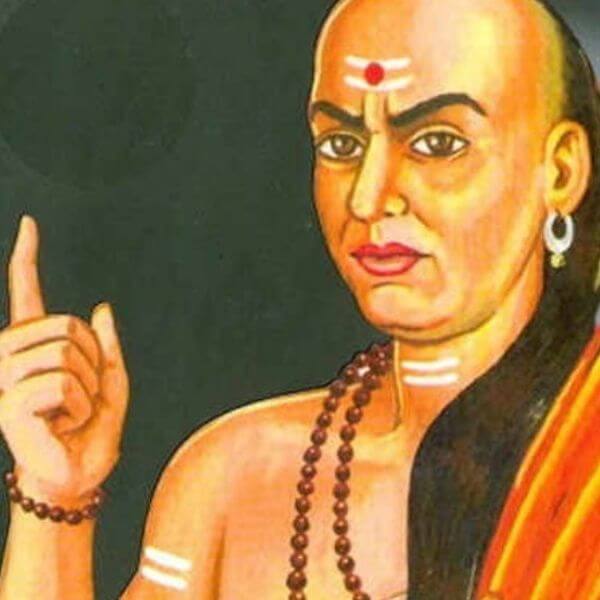
Chanakya: Quotes and Books
Books
Let us now study Chanakya’s ethics, quotes, and books. Despite the fact that Chanakya wrote numerous works, some of them are unquestionably well-known.
- Arthashastra
- Sampurna Chanakya neeti
- Chanakya neeti
- Chanakya wrote the Arthshastra, which is his most famous work. His Arthshastra is a treatise on statecraft and empire management. It covers texts on the essence of governance, law, civil and criminal court systems, ethics, economics, markets, and trade, ministerial screening procedures, diplomacy, war theories, peace theories, and a king’s duties and obligations.
- His ideas were written down in Chanakya Niti, his book.
Here is a link to his book, Chanakya Neeti, which you can purchase online. It discusses the numerous beliefs he taught at the time, all of which are still important now. People resort to it to learn about the vices that should be avoided in order to live a happy and fulfilling life.
Quotes
The quote I’m going to share is straight from Chankya Niti.
- A person should not be too truthful Because Straight trees are cut first & honest people are screwed first.
- There is some self-interest behind every friendship. There is no friendship without self-interests. This is a bitter truth.
- For the first five years, Treat your kid like a darling. For the next 5 yrs, scold them. By the time they turn 16, treat them like a friend. Your grown-up children are your best friends.
- The fragrance of flowers spreads only in the direction of the wind. However, the goodness of a person spreads in all directions.
- Education is the best friend. An educated person is respected everywhere. Education beats the beauty and the youth.

Conclusion- Chanakya
This article covers everything you need to know about Chanakya, Kautilya (Chankya Niti), his famous quote, and the books he wrote. I hope you found this information useful. Chanakya was a mighty kingmaker who single-handedly molded a street lad into a great emperor through his sheer brain. Chandragupta proved to be a great emperor & nation-builder under the guidance of Chanakya. Chanakya’s ideas and programs continue to benefit millions of people today. Politicians, businesses, and many others are now using Chanakya Niti to achieve their goals in life.
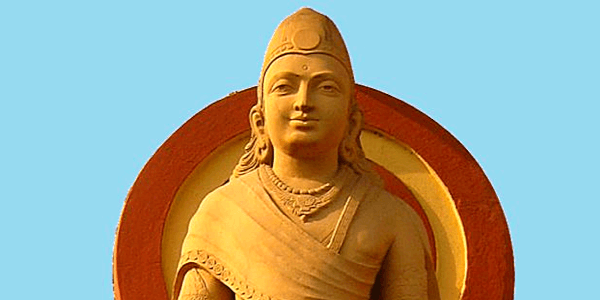
FAQ- Chanakya
Chandragupta Maurya, who is credited with building the first pan-Indian Empire, formed the Mauryan Dynasty. Chandragupta established the cast consolidated Empire with the help of his guru Chanakya. He effectively pulled together minor, fractured kingdoms to form a single enormous empire. He ruled for about 23 years before giving up all worldly pleasures and becoming a Jain Monk.
Several scholars have linked Chanakya’s ancient Arthashastra to him. Except for one line, which refers to him by his personal name of Vishnugupta, the Arthashastra identifies its author as Kautilya, a gotra or clan name. Therefore, the author’s gotra is most likely called Kautilya (clan).
Chanakya passed away in the year 283 BC. Chanakya’s death is the subject of numerous legends. Some believe he went to the bush after resigning as Prime Minister and died there, while others claim he perished as a result of a plot orchestrated by Subandhu, a minister in Bindusara’s court.
Editor’s Note | Chanakya
After reading the entire essay, you will gain knowledge about Chanakya. The Indian political book, the ‘Arthashastra,’ was written by a teacher, philosopher, economist, and statesman. He was a crucial figure in the founding of the Maurya dynasty. We’ve also included Kautilya (chankya) Niti, as well as some of his most renowned writings and Chanakya quotes. Don’t forget to read the entire text and take notes since this will help you prepare for the UPSC exam. Only those who are able to push through their doubts and keep focused on their goals will achieve success. This can only happen if one loves the preparation journey and does not dwell too much on the destination. This is also important for remaining motivated. Lastly, we wish you all the best!

